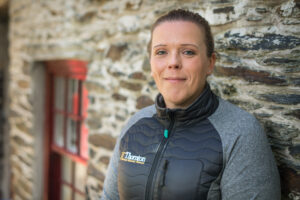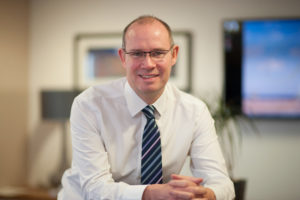At Thornton Chartered Financial Planners, we currently have four qualified financial planners (this is soon to be five, with our trainee, Rita, having just passed her final exam to be a Chartered Financial Planner! – but more on that story soon!). We span a range of ages from mid-30s to 60s.
This article from the young(ish) cohorts Rita, Natalie and John highlight their key financial planning thoughts and tips for people in their 30s and 40s.
Next time, we’ll hear from Sharon and Jools on their financial planning tips for people in their 50s and 60s.
 Rita Harel – age 34 (Trainee Financial Planner)
Rita Harel – age 34 (Trainee Financial Planner)
1 – Each life stage has its challenges and opportunities
In financial planning, we often talk about life’s accumulation (saving) and decumulation (spending) stages. If it only was that simple. As a mother of two children under 6, I am technically in the saving stage of life but find myself working to pay for childcare and holiday clubs. Having ‘surveyed’ other young parents early in their careers, I discovered this is quite common. Take heart – this shall pass! Kids will eventually get out their nappies and start school.
As you progress in your career, your earnings are likely to rise, and so will your ability to work more hours. Once your kids are school age, you will have more spare cash. My advice is to put aside some of the childcare savings for your future goals and allocate the rest to creating memories.
2 – Don’t sweat the small stuff and spend in line with your values
Someone wise once said: ‘Show me your chequebook and calendar I will show you where your priorities lie’. Our job as financial planners is to help clients not just to help them live within their means but also to align their spending with their values.
The millennials (now between age 25 and 40) are stereotypically accused of buying lattes and eating avocado toasts and, therefore, under-saving for their future. I admit I like my flat whites and avocados.
I can tell you, if you (or I) invested £3 per day (the price of a latte) into a globally diversified equities portfolio for the next 20 years, it might grow to £37,000 or more. This is not exactly a life-changing sum of money. It is true that it is harder for us millennials to make a head start than it was for our parents. We are paying more for education and housing. I would say: don’t sweat the small stuff but rethink the big stuff.
If you were to start with a blank sheet of paper, what would your life look like, and how much would it cost? How would your spending differ? Are you spending on the stuff and experiences that matter to you? Do you need the largest house you can buy? Or could you live in a smaller home, use the savings towards experiences, and invest the rest?
3 – You are your biggest asset
In your 30s, you are unlikely to have accumulated vast sums of money. You are your biggest asset. Invest in yourself and take care of your money-making machine (that is you!). Take the time to unplug and figure out if you have the right work and life balance. Do you come home energised or depleted? If you like what you do, you are likely to work harder, get paid more and have more money to put aside for your financial independence day.
My biggest financial fear
I fear being ‘sandwiched in’ by simultaneously having to support ageing parents and my children. As a consequence, being unable to make progress toward my financial future. It is better to prepare than repair. My colleague, Natalie, wrote an insightful article on how to plan for the potential challenges of being the ‘sandwich generation.’
 Natalie Bush – age 38 (Chartered Financial Planner)
Natalie Bush – age 38 (Chartered Financial Planner)
1 – Budget ruthlessly
With inflation at a 40-year high and utility costs rocketing, this is more important than ever. Keep a record of your spending in each area of your life by regularly checking your bank statements. You can see if or what you’re wasting money on.
Netflix, Spotify, Amazon Prime, etc., all seem cheap individually, but the small things add up. Nearly 1 million people have cancelled their Netflix subscriptions in the first half of 2022, mainly attributed to people focussing more on their budgets.
2 – Spend what you don’t save, not the other way round!
People (including me) have a fantastic ability to spend money and live within their means simultaneously.
Commit to saving, then spend.
Overpay your mortgage by a bit each month if you can, it will make a massive difference over the long run, and your future self will thank you.
3 – Start a pension and take as much investment risk as you can “stomach” with it
I was 27 when I first paid into a pension, but I still had at least 23 years before considering touching it, even though I was late to the party.
This is plenty of time for it to recover from short-term investment market falls, such as what we are currently experiencing, and the fact I contribute monthly means I can benefit from buying more when markets are low. Buying at a low price is always a good thing with anything!
I’m comfortable with this approach now, but before I was a financial planner in my former career, I was guilty of initially thinking my pension needed to be kept ‘safe’ by holding very low-risk investments.
I’m not talking speculative stuff here, just well-diversified investment funds with exposure to big, successful global companies to generate long-term growth.
Biggest financial fear
My biggest financial fear is being unable to pay my mortgage and bills. Using what I save in the summer towards winter fuel bills helps.
Insure stuff – mortgage, boiler, house, contents, medical/dental. I would hate to have a huge unexpected bill, and this approach creates a more predictable, manageable cash flow for me.
 John Condon – age 47 (Chartered Financial Planner)
John Condon – age 47 (Chartered Financial Planner)
1 – Insure against disaster
What would happen to the family if you got hit by a bus or got ill and couldn’t earn? Would everyone manage?
Have some money in the bank to keep you afloat in the short term; a slush fund, rainy day money, whatever you want to call it; you never know when it will be needed. Life is unpredictable, don’t we all know it after the last couple of years.
Understand what your work protection benefits cover and top it up if it’s not enough. It’s not as attractive as a company bonus scheme if you’re lucky enough to have one, but it’s essential to understand what you get.
Cover yourself if you are self-employed.
2 – Make pension tax relief from the Government work for you
This gives you an automatic uplift of up to 20% tax relief – it’s the most tax-efficient thing and can help drive your retirement planning.
Make sure the funds in your pension aren’t too “safey-safey” just yet – there’s probably still some time to go until you retire.
Have a target figure to aim for, which will allow you to retire / part retire when you hit it. Know roughly how much you will need to put in and for how long to get there. Even if it’s just a “back of an envelope plan”….. it’s still a plan.
3 – If you receive child benefit, try if you can to save it for the kids’ future
If you don’t receive child benefits as a high earner, try to earmark some money each month to save for them.
Biggest financial fears
Future pension provision for the younger generation. It’s becoming clear that this is “on them” now, more than ever. As a saver rather than a spender, not getting the balance quite right between saving for tomorrow and enjoying today.
Keep an eye out for our following Insight written by Sharon and Jools with their financial planning tips for people in their 50s and 60s.




